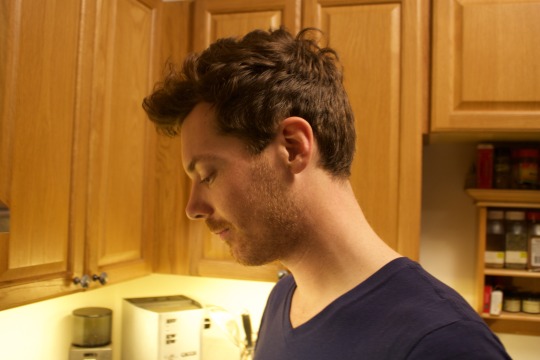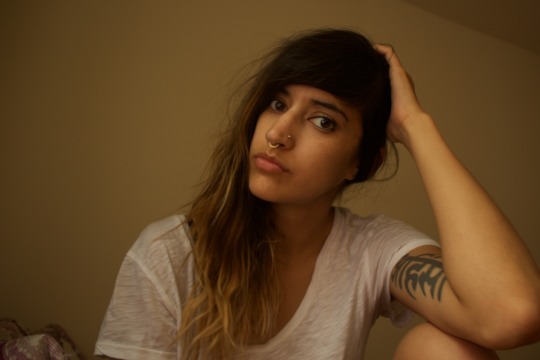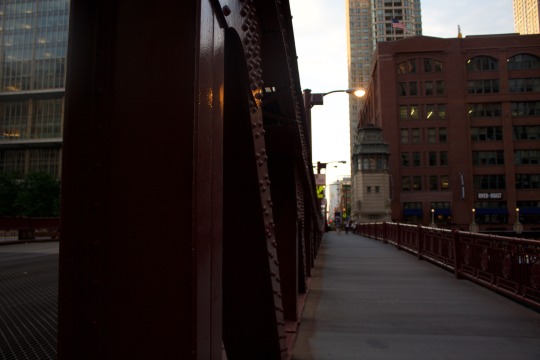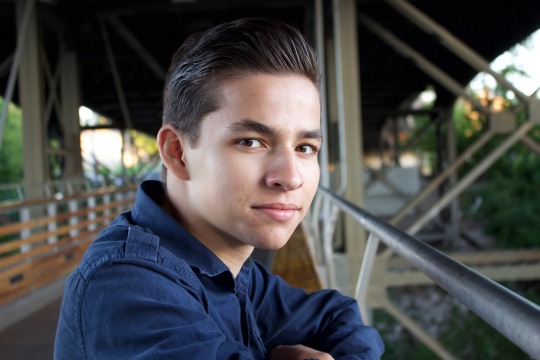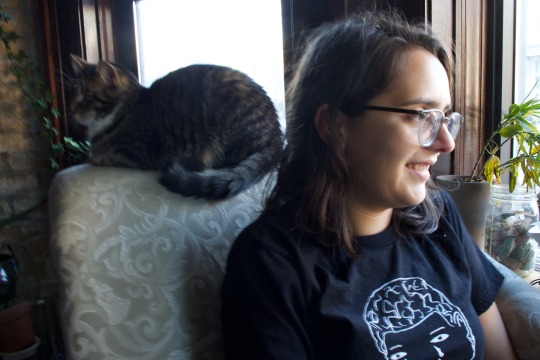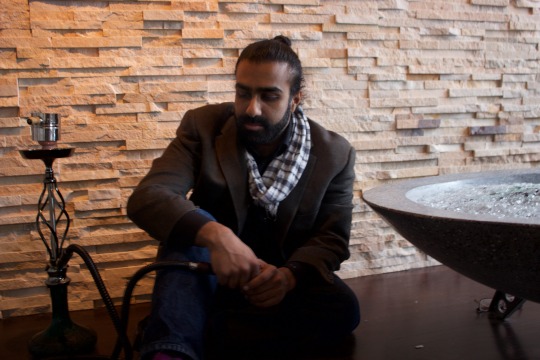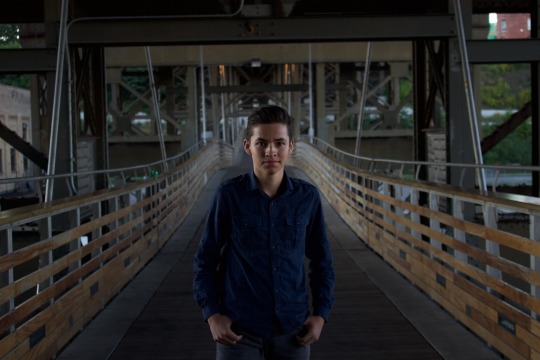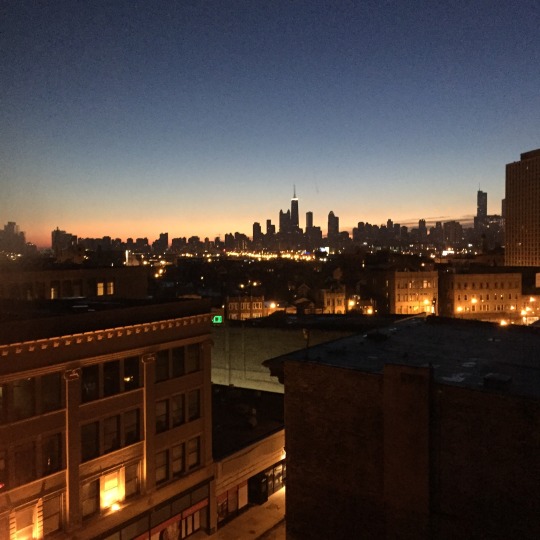Text
Making Some Dietary Changes for the New Year? 10 Tips to Help You Stay on Track
Veganuary and Dry January are just a few of the goals people have been undertaking as a means of cleansing, changing, renewing, and growing. How hard is it to cut something out of your diet or to radically transform your diet and your relationship with food? While everyone may not become a sober vegan, there are many dietary changes people are undertaking – perhaps you are trying to cut meat out or eat smaller portions. Whatever your goal is, it can be hard to consistently reach these goals without the right mindset (even with the right mindset). Sometimes we feel imprisoned by our habits, which serve as obstacles to reaching our ethical and dietary health goals.
Here are some tips for achieving your dietary and ethical goals while transcending those negative patterns and self-defeating habits. I don’t claim to be a master of diets by any means, but I have made changes to my diet based off of ethical and environmental concerns and have been successful with this for over 10 years. While I have been a vegetarian-pescatarian, I recently cut octopus and shrimp out of my diet due to octopi having complex brains and shrimp coming from Southeast Asian slave labor. So I hear you, the struggle is real.

The Tips:
Change has to come from within – Do you truly feel inspired to make these dietary changes or do you feel pressure from someone close to you or is it to follow a trend? When I became a vegetarian 12 years ago, I did it out of my own volition, and it was a personal decision. No one told me to become one, and I was the odd woman out with most of my friends and family.
Think about the reasons for why you are doing what you’re doing – I became vegetarian mainly for ethical reasons. I had seen plenty of tortured animal videos and did a lot of research, so I realized couldn’t live with myself knowing that I was eating the flesh of beings that had suffered for unnecessary reasons. I find that when you do something for ethical reasons, it is much easier to stay committed to your goal than when you do something for aesthetic reasons (e.g. I have to lose weight so I look hot in this bikini). I am not saying that one reason is superior to another reason but if there is a firm connection between who you are as a person and your goals, it will be much easier to truly embody these goals than if they weren’t connected to your authentic sense of self.

Don’t forget why you made the choice to give up meat, dairy, eggs, etc. – Over time, it’s easy to forget all of the atrocious things that are happening to animals, other humans and the earth. We grow comfortable in our bubbles and can be tempted to just eat that crispy piece of bacon or that refreshing ice cream. It’s imperative to remind oneself during these periods of temptation that you are doing what you are doing for a principled reason. I have plenty of friends and family members who eat meat and of course what they are eating can smell and look appetizing! It’s easy to envy how many options they have when they eat out. But when I am tempted, I think back to the videos of the cramped pigs, the artificially inseminated cows, etc., which ends up turning me off from the forbidden food item. I keep remembering that it’s the system (subsidized meat and dairy industries) that makes being a vegetarian/vegan harder. It’s not intrinsically harder, but it would be much easier in a country where vegetarianism is more mainstream.
Take baby steps – If you feel overwhelmed by the prospect of never eating meat again, see how it goes for a month. A month long goal can feel much more feasible and within reach than a lifelong goal. While it takes longer than a month to break a habit (about 2 months), setting smaller goals can ensure more long-term success. Right now, I am setting a goal to be sober for the month. I would cry if I could never drink wine again, but just seeing how it goes for a month makes it much more feasible to not engage in Bacchanalian hedonism.
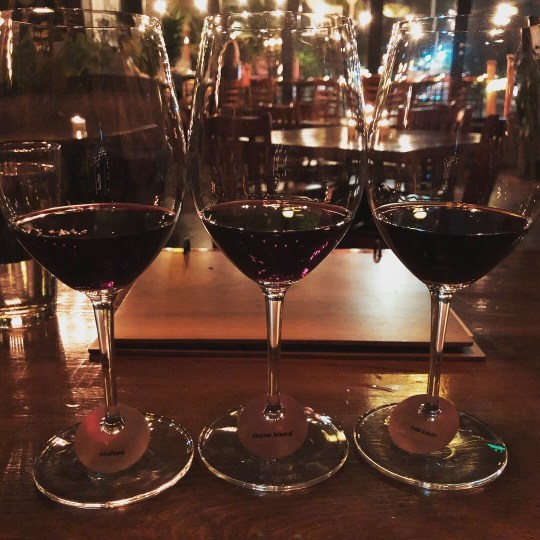
You’re not alone – It’s easy to experience alienation and isolation when it feels like you’re the only one committed to making these ethical changes. I am oftentimes one of the few vegetarians when I eat out with friends, family, colleagues, etc. But remember that so many others are trying to do exactly what you are doing. Now with the prolific internet and vast social media, it is easy to find a support network online as well as a plethora of helpful resources. You’re not in this alone! People have been trying to do what you are doing for years and have created resources based off of their experiences which makes it so much easier to change how one eats. This leads me to my next tip…
Surround yourself with others who are doing similar things – This may not be possible for everyone but if you can, it is much easier to make these changes when others have already done so or are doing the same. I can’t tell you how lovely it is to eat dinner and cook with fellow plant-based eaters. Not only is it logistically and financially easier, but it is much easier to feel like you have a community, that you aren’t alone and that other people GET IT! I’m not saying ditch your other friends, but know that surrounding yourself with others who are doing similar things make it much easier to reach your goals.
If at first you don’t succeed, dust yourself off and try again (Aaliyah would have been 40 this month, RIP) – It’s not the end of the world if you slip up and drunkenly eat that cheap pepperoni pizza that all your friends are eating. No one is judging you but yourself (or the people who run the “Good Place”), so give yourself space to forgive yourself and try again. Start with a blank slate. What you eat is very personal; you are your own boss.
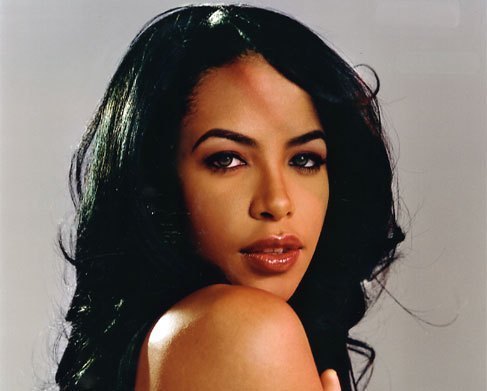
Don’t let others bring you down – You know how those annoying people can act when you tell them you’re a vegetarian, vegan, gluten-free, sober, etc., “Oh, don’t you just want to eat this steak?” “You’re no fun.” “I love how meat tastes too much so I could never become a vegetarian.” Do you know what I do when I hear this? I roll my eyes inside and have fun comebacks in my head. “Oh, a dead tortured animal tastes good to you – you disgust me.” “Meat doesn’t taste that great unless it’s seasoned well. Vegetables can be seasoned well too and taste even better. Just learn how to use some spices.” However, I politely nod and say things like “I love how vegetables taste. When seasoned correctly, they are even more delicious.” “I feel energetic and great, I’m not tired all the time contrary to the stereotype.” “There is plenty of nutrition in plant-based sources.”
I could go on, but you get the general gist. Sometimes other people have their own insecurities about what they eat/drink so they want to bring you down with them and wish they had the kind of self-control you have, so they act like a 5 year old when you tell them you’re a vegetarian. Just move on and know that if we lived in a society where veganism/vegetarianism, etc. was mainstream, you wouldn’t be hearing such asinine remarks.

Learn how to cook – Cooking is such an excellent way of controlling what you eat and making it as flavorful as you’d like. I learned how to cook when I first became a vegetarian in college considering that the vegetarian options on campus were unhealthy and bland. Always having some spices on hand along with my best friend, olive oil, will keep you sane. Here are some basic spices to always have on hand to make any vegetable taste delicious: salt, pepper, red pepper, Hungarian paprika, Smoked Spanish paprika, cumin, rosemary, cayenne pepper, and turmeric. These liquids are also great for sautéing: olive oil, tamari/soy sauce, red wine/white wine vinegar, balsamic vinegar, rice wine vinegar, sesame oil, and dijon mustard. While the rest of the world eats whatever, you at least control what goes in your kitchen (hopefully you can), what you cook, what you eat, and therefore what you consume. I think of my kitchen as my vegetarian-haven where I take shelter from the meat-centric country I live in.
Be cheap – You don’t have to spend a bunch of money on new ingredients, cookbooks, etc. to fulfill your goals. Ingredients can be bought gradually. Spices are cheap and so are the basic liquids for sautéing (olive oil can be expensive, but it is much healthier than canola/vegetable oil). There are also so many free recipes and food blogs online that you don’t have to waste money on a cookbook. I love cookbooks but if affordability is an issue, then don’t waste money on one.
And don’t forget to have fun! You are embarking on something new and exciting! Eating the same food and doing the same thing can get really boring. Think of this as an opportunity to expand your horizons and experience something new and enriching.
If you’re interested in learning more about ethical eating, check out my food blog: https://www.chiveg.com
#Dry January#veganuary#whole30#vegetarian#vegan#pescatarian#healthy living#ethical living#philosophy#chiveg#chicagovegetarian#foodblogger#feminist#affordableating#spices#vegetariancooking#vegetarianblogger#chicagofood
4 notes
·
View notes
Photo
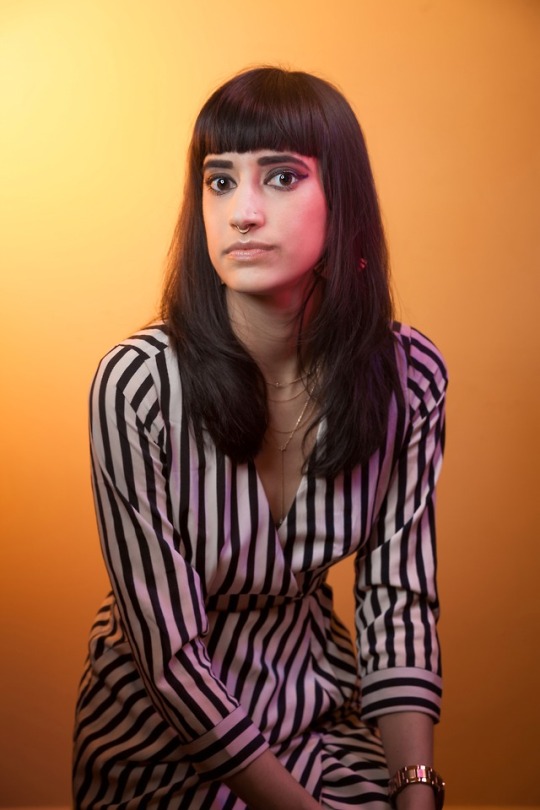
📸 @mietustouch
I had posted this photo with some of this commentary on Instagram and I got extremely positive feedback, which I wasn’t expecting at all. It did feel quite empowering, but then again, I am not linking my self worth to how other people react to me. It is oh so difficult though when we live in the social media matrix.
Still decolonizing my internalized beauty standards. Always a work in progress. I still have those immediate, negative reactions when I see photos of myself. I at least don’t let those immediate, negative reactions define my self-perception. The damage of growing up in a white society where Western European features are 1) mainly represented 2) represented as the only form of “beauty” was pretty harrowing, especially growing up in the Chicago suburbs where I always felt like an “ethnically ambiguous other” and my own mom would dye her hair blonde. I could also go on about how women are pressured to smile and look happy all the time since I have never been a smiley person as it doesn’t represent me authentically. Yet, I’ve been socialized to think I look “prettier” when I smile. Oh internalized sexism! But I digress.
In my adulthood, my understanding of beauty has expanded and I am continuously working on decolonizing my perception of what is beautiful. It’s a method of survival to negate the internalized desire to look “white”. I hope that other women can love how they look in spite of the appeal to white supremacy and “glory days” that our political administration and half of this country is romanticizing.
I do acknowledge that I am privileged in some ways and am not claiming otherwise. But identity is complex and we can be privileged in some ways and be inferiorized in other ways. Yes, things have gotten better, there are more and more women of color represented in the media and fashion, but that doesn’t undo years of negative socialization. The remnants of white supremacist beauty standards still reign all over the world. People are still using skin bleaching cremes (about 60% of skin creams in India have bleach in them), others are getting nose surgeries to make their nose look “western” (e.g. Iran), while others are getting eye surgeries to make their eyes appear more “western” (e.g. South Korea). Clearly there is still an obsession with looking “white”. While “formal colonization” may have ended, countries all over the world experience the cultural hegemony of the West. Clearly white supremacist beauty standards are not a relic of the past and we need to acknowledge this cultural imperialism (Iris Marion Young).
Fanon of course put it best as he describes the colonized, “black man” living in a white supremacist society experiencing this otherness, being reduced to an “abject other” while trying to assert one’s agency as a free, subjective human being.
“I came into the world anxious to uncover meaning in things, my soul desirous to be at the origin of the world, and here I am an object among other objects. Locked in this suffocating reification, I appealed to the Other so that his liberating gaze, gliding over my body suddenly smoothed of rough edges, would give me back the lightness of being I thought I had lost, and taking me out the world put me back in the world. But just as I get to the other slope I stumble, and the Other fixes me with his gaze, his gestures and attitude, the same way you fix a preparation with a dye. I lose my temper, demand an explanation….Nothing doing. I explode. Here are the fragments put together by another me” (89). - Frantz Fanon, Black Skin White Masks
How could we not see ourselves through the more dominant group? We have agency, but let’s not undermine the impact of the society we live in upon our agency. We are intersubjective beings whose bodies are the primary ways in which we have contact with the world we live in.
#otherness#Frantz fanon#postcolonial theory#postcolonial#beauty standards#feminism#femininity#whiteness#race#gender#intersectionality#intersectional feminism#women of color
0 notes
Text
Why I am Not Mourning Hugh Hefner’s Death
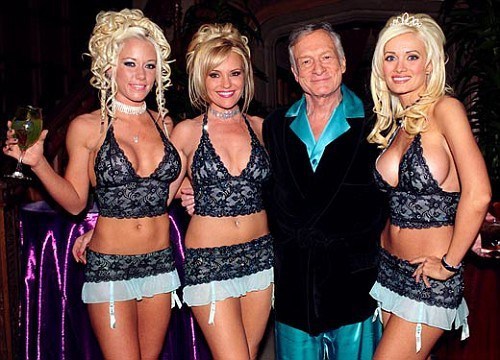
Last week in the midst of deadly hurricanes and earthquakes, a guy named Hugh Hefner died. When I first heard about his death, I felt apathetic about it. Yeah, he was 91 and pretty old so this makes sense, even though death seems to be a sad phenomenon regardless of how old the person is. I went about my day, but of course, social media makes things complicated. I remember seeing a lot of sad posts from people mourning his death, and it made me feel sick.

- Pamela Anderson mourning Hefner’s death
Not only were men mourning his death, but women were too. On the gym tv,
which is where I get my minimal exposure to cable tv, there was an Access
Hollywood episode on how Pamela Anderson was mourning his death amongst a slew of homogeneous-looking fake blondes. I was trying to focus on my strength training--, gotta focus to have good form--, but I couldn’t help but roll my eyes at what I was seeing on this television. How could so many people be mourning this guy’s death? Why is it all over so many television networks? And why are women sad about this?

- Kate Millett
So many other people (such as feminist thinker Kate Millett (pictured above) or philosopher Anne Dufourmantelle who died following her own philosophy of saving a child in 2017) have died who contributed much more positively to our society and were actual decent human beings, yet their deaths barely made a headline. Hugh Hefner, a millionaire, was making far more headlines than I could wrap my head around in the midst of two deadly hurricanes, an earthquake, and all of the usual political upheaval that deserves more attention. Why is our society worshipping such an unethical guy? I guess this isn’t a surprising practice considering who half of this country voted for.
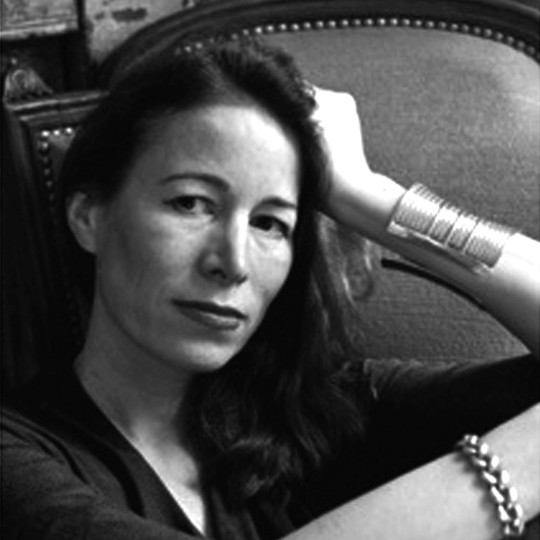
- Anne Dufourmantelle
I have heard bad things before about Hefner and already thought he was a shady guy for his Playboy empire that perpetuated the accessorization of women, the objectification of them, and worship of Aryan looking women (not to mention the worship of fakeness all around whether it’s fake boobs or lips). People can get whatever they want done to their bodies but when you glorify that look, that’s when I have problems because young girls grow up with this notion that they have to change everything about their looks to become an Aryan blonde with big boobs and lips in order to be sexy and accepted by men.
Everything about Playboy was gross to me and disgusted me as a woman who looks far different from people like Pamela Anderson (I have dark hair, brown eyes, and a non-button nose). I would see images of this old guy in a robe with a bunch of women who looked a lifetime younger than him and who looked messed up themselves but for different reasons. I remember the Sex and the City episode where Samantha Jones had fought to get into the Playboy Mansion and was thrilled to be there and meet Hefner. I guess her character liked him because she was so sexually liberated and he represented that openness to her. Representations like these normalized him in our culture.
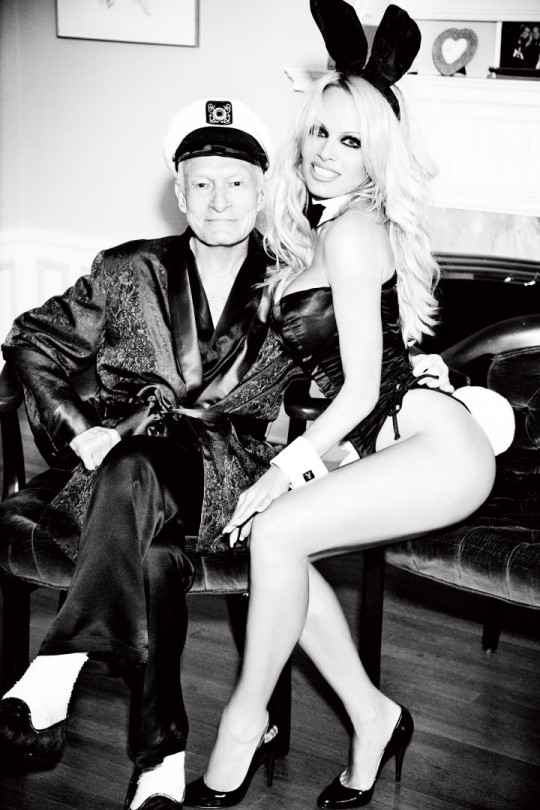
But didn’t Hugh Hefner contribute to the liberal sexual revolution? Wasn’t Playboy about celebrating open sexuality and promiscuity? Well, I have no qualms with these forms of expression. People can flaunt their sexuality however they want and I have no right to critique that. But Hugh Hefner and his stupid Playboy empire did not contribute to a sexual revolution for all. It just paired old, white male sexuality with dominance over women and the accesorization of them. It perpetuated the notion that women and their sexuality exist solely for men and that if you’re a rich, old white guy, you can get any 20 year old blonde regardless of how much of a jerk you are.
When I think of entitled old white men, I think of Hugh Hefner. He is the poster child for that white, male privilege and he disgusts me. Why does he disgust me beyond what I already have mentioned? Let me tell you:
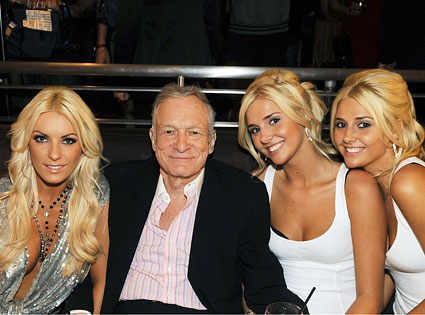
In a recent Jezebel article “Working for Hugh Hefner Sounds Like a Horror Show of Blood and Semen and Pelvic Cheeseburgers”, a man who was Hefner’s valet for a short period of time told some pretty terrible tales. Aside from making this poor guy deliver sex toys covered in semen, vaginal, and anal fluids for sterilization (this is just gross rather than oppressive, but seriously, deal with your own fluids, why make someone else do this?), this guy also had to escort debilitated sex workers to “recuperate” from their sexcapades. What were these sex workers recovering from?
Having sex with men who had enormous dicks. Hefner would watch porn stars with gigantic dicks like John Holmes have sex with women. Do you know how painful it is to have sex with someone who has a big dick? These women couldn’t walk afterwards, they were so debilitated. They were in so much pain. Yet, Hefner didn’t care and seemed to sadistically get off from watching these women in pain. I don’t think you need a vagina to feel empathy for someone who has vaginal pain. He would give some of these women bonuses for performing these painful sex acts, thus encouraging them to be complicit with their own pain.
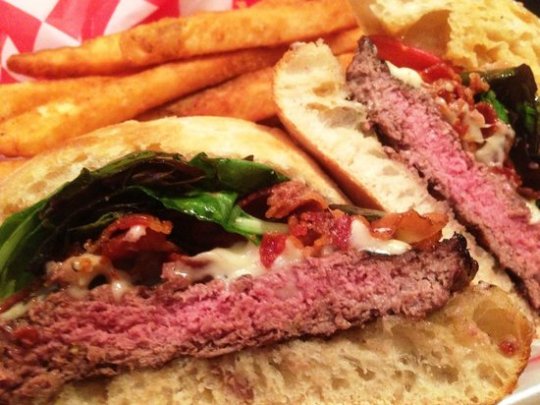
He also called for lobster and cheeseburgers to be placed in between the legs of his bunnies and other women floating in the pool while attaching toys to her vaginal area. Seriously? I get that people have their kinks, but this just seems cruel, unsanitary and something that’s likely to give a woman a yeast infection, bacterial vaginosis, etc. This is also an example of how he treated these women as accessories, jokes, spectacles to get him off or to help promote his “cool Playboy” image.
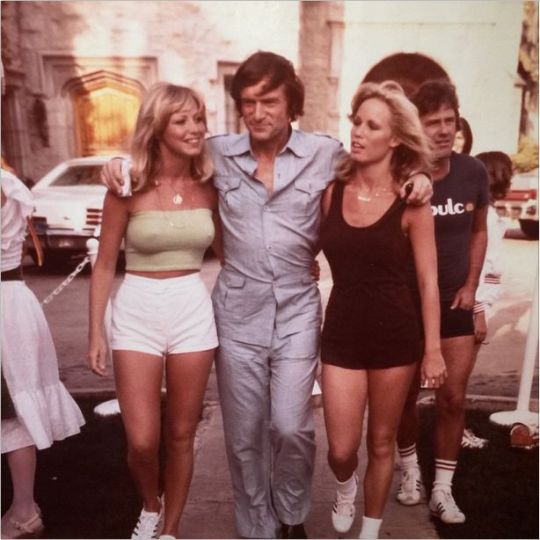
If you aren’t convinced that this guy was a deplorable human being, he also disposed of women once their breast implants burst. Back in the 1970’s, breast implants would burst more easily because they were newer. Instead of understanding that a breast implant bursting was outside of one’s control, he would break up with them and throw them out in spite of their desperate pleas to be taken back. Seriously?! You encourage these women to get breast implants and specifically select women who have them, then you throw them away because they burst? Why do women celebrate this man? I just don’t get it.
This man’s raison d’être was about exploiting women and then making it look like it was all about a fun sexual revolution. If you’re not convinced that Hefner was a deplorable human being because you might say that these women consented to this treatment, let’s talk about how he was a domestic abuser.
A recent article from Current Affairs, “Good Riddance to an Abusive Creep” discussed harrowing accounts from former residents of the Playboy Mansion. They described it as an “internment camp”, these are not words to be taken lightly. These women felt trapped and were mentally (and sexually) abused by this man. They had a 9 pm curfew. Yes, adult women had a 9 pm curfew and if they violated it, Hefner would cry and tell them to move out. They also had to wear matching pajamas because why should women get to choose what they can wear. They were literally treated like child sex workers.
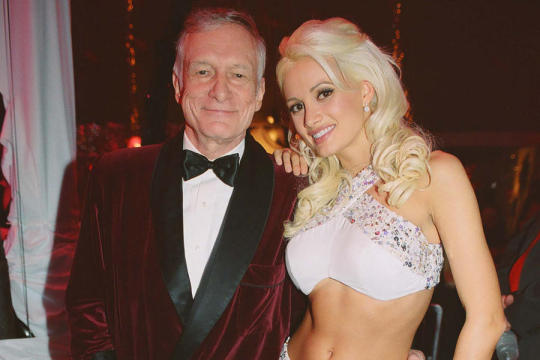
- Holly Madison
Somehow this guy had many girlfriends and he would cause drama, competition, and infighting. He would ridicule these women and tell them they look “old, hard, and cheap” (said by the old dude who was 20 plus years older than them) and make them cry. He pushed quaaludes on these young women calling them “thigh openers”. This guy didn’t contribute to a sexual revolution, he normalized rape culture. Big difference. A former bunny, Holly Madison (pictured above) called him “manipulative, cold, and totalitarian”. Some of the bunnies felt like they were in prison and Madison considered suicide because she felt so trapped. Sounds like a really nice guy that we should mourn.
Not only was he verbally and emotionally abusive, he refused to be tested for STI’s and refused to wear condoms while requiring group sex at regimented times. This is a form of sexual abuse. Consenting to sex doesn’t mean you consent to unprotected sex that can potentially have life-changing consequences (pregnancy and STI’s). This sounds like a perfect environment for spreading potentially life-changing STI’s like HIV and herpes. These women were pretty much sex workers who were paid an allowance every week and he would threaten to not pay them if he felt he was losing control over them. Sounds like a consensual situation to me. Hefner was basically a glorified pimp who abused women sexually, mentally, and verbally.
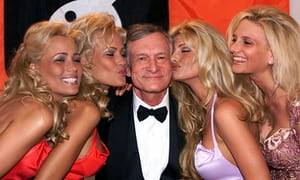
We as a society should not be celebrating this man whether he is dead or alive. This man is a textbook definition of a “domestic abuser” and I will not celebrate such a person. What’s even more disturbing is that more respectable media sources like BBC News, New York Times, and the New Yorker whitewashed his abusive actions and made him look like a key player of the 1960’s sexual revolution who created a “fun, new lifestyle”. If this doesn’t make you want to vomit, then I don’t know what will.
“In his words “We enjoy mixing up cocktails and an hors d’oeuvre or two, putting a little mood music on the phonograph and inviting in a female acquaintance for a quiet discussion on Picasso, Nietzsche, jazz, sex.” But it was always clear that the intellectual side of Playboy was strictly for men: he refused to discuss politics or literature with any of his girlfriends. They were there for him to have joyless unprotected sex with whenever he pleased.”
- Nathan J. Robinson, Current Affairs
This abusive misogynist was painted by the media as a classy, high-brow dude who just had fun sex with consenting women. But for him, women were mere objects that you just f*** or watch them f*** someone in pain who you can’t possibly talk about intellectual matters with. This man wasn’t into sex as a pleasurable act, he was into dominating and controlling women under the guise of hedonism. The irony is that this guy was a libertarian who was all about “freedom” theoretically, yet he was a totalitarian in his own mansion to many young women. He controlled how they had sex, what they would wear, and where they could go.

- Ewwww
More people need to know this. So please read up on the guy before you post a bunch of articles and photos glorifying such a tyrannical abuser. Not only are we complicit as a society with domestic abusers, we celebrate them. Hugh Hefner is just one guy but domestic/sexual abuse is a societal problem. Our society needs to stop worshipping abusive men and it starts with us calling them out and not celebrating them even if they’re dead.
#hugh hefner#playboy#playboybunnies#pamela anderson#holly madison#feminism#patriarchy#sexism#objectification#abuse#emotionalabuse#sexualabuse#domesticabuse#misogyny
5 notes
·
View notes
Text
Confronting my own orientalism in Morocco
Recently, I had the incredibly enriching opportunity to lead a service-learning trip abroad for students through my college. We volunteered in Rabat for two weeks, while taking a few trips to other cities. This blog post is my way of considering how this trip made me rethink some of my views, and make sense of my experiences emotionally, as a Western/American feminist and as someone who studies/teaches postcolonial theory.
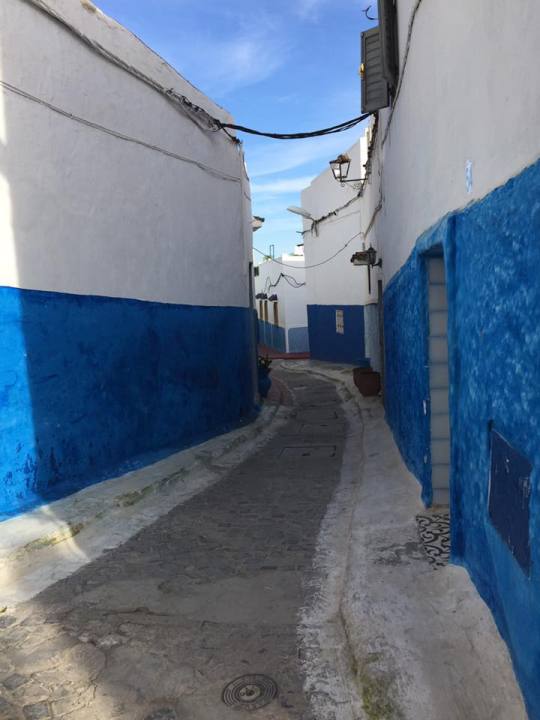
Blue streets in Rabat
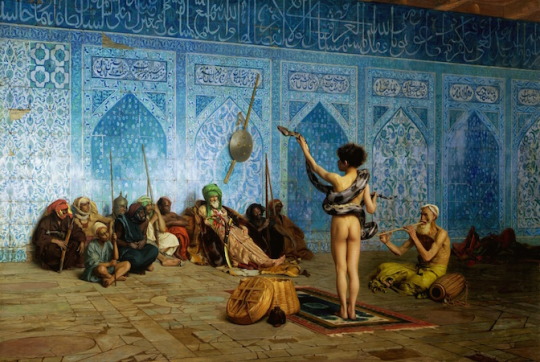
Cover of Said’s Orientalism
Orientalism is “the basic distinction between East and West as the starting point for elaborate theories, epics, novels, social descriptions, and political accounts concerning the Orient, its people, customs, ‘mind,’ destiny and so on,” according to postcolonial thinker Edward Said in his groundbreaking work Orientalism. As someone who is an object of Orientalist thinking (being called “exotic”, expected to know everything about yoga and Indian food, etc.) while also fascinated by postcolonial theory, I am aware of orientalism in seemingly mundane, daily situations. I teach about it in my Philosophy courses and had the unique opportunity to teach about it in an Ethics/Postcolonial Theory course that was part of students’ service-learning trip experience in Morocco. Before going to Morocco, I maintained an open mind but was not really sure what to expect. I knew that Islam was the predominant religion there, had read about Spanish and French colonization, and read about the Imazighen (“Berbers”) who existed in North Africa prior to the Arab conquest of North Africa.
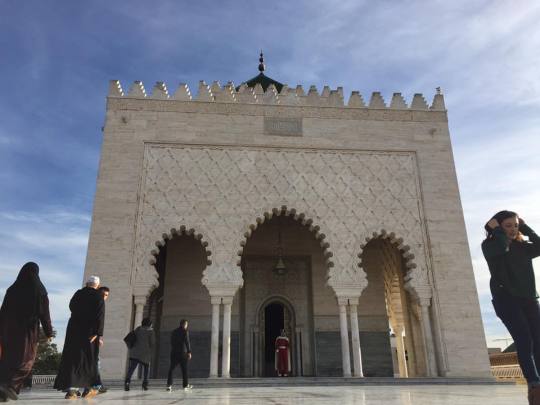
Mausoleum of Mohamed V
Until this trip, I had only traveled to Canada and Europe, so this was my first time in a “non-western,” Muslim country (an admittedly orientalist statement given the use of “non-western”). I had read that Morocco was a “developing” country and that it has high rates of unemployment (about 10%) and illiteracy (32% - more women than men are illiterate and it is more prevalent in rural areas than urban areas). I had read conflicting accounts regarding the prevalence of the hijab (the head covering worn by some women in Muslim countries – which is different from the more conservative Niqab and Burka, which tend to cover the whole face and body with a gap for the eyes – the Niqab has a gap and the Burka has mesh covering over the eyes) and was told that Rabat was a pretty “cosmopolitan” city so some women wear it and some women don’t.
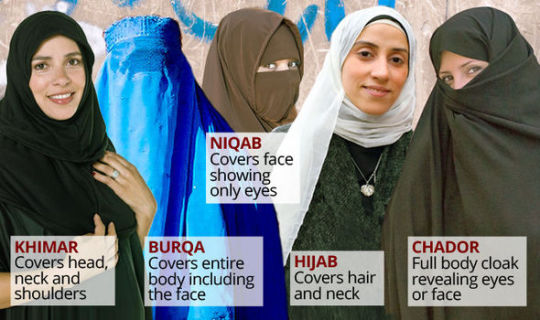
With these facts in mind, as well as the nightmarish accounts I have heard about the oppression of Muslim women in Arab countries (such as facing endless rape, the prohibition of driving in Saudi Arabia, not having work or life opportunities outside the home, or being required to obey husbands), I approached Morocco with both caution for my physical appearance and respect for the country’s culture. I packed baggier clothing, and covered my neck, chest, butt, and legs.
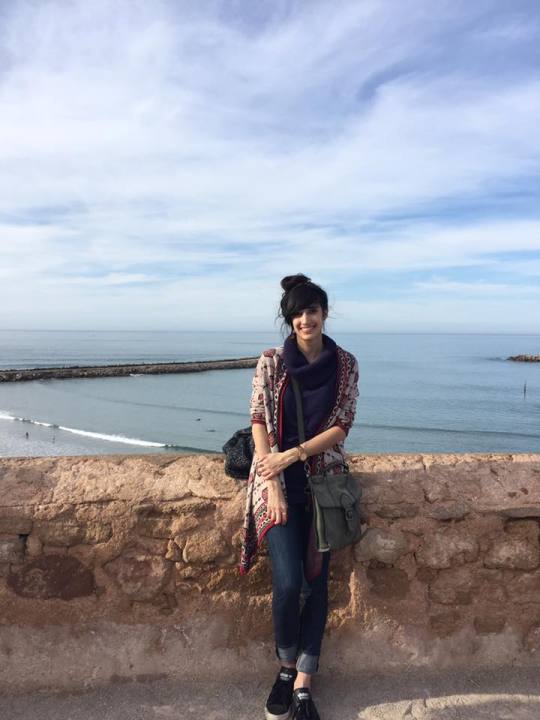
Kasbah des Oudaias in Rabat
Such modification from what I normally wear made me feel personally conflicted, because I felt like I was perpetuating the idea that a woman’s attire is responsible for her objectification, rape or assault. As in the US, Morocco values virginity – so if a woman were raped, she would be considered “dirty,” and in some cases could not leave her home for fear of public shaming, or could be forced to marry her rapist. From my Western feminist perspective, I am in no position to judge non-Western practices, but what if a person’s fundamental human rights are being trampled? Yet humility forces me to ask further, Who am I to deem what is a basic human right? Are there some matters that supersede cultural relativism, and are universal, like rape cases?
I don’t know. My gut tells me yes, some matters are universally unethical. However, while I had a very negative reaction to hearing about how rape is handled and treated in Morocco, it is not treated or handled much better in the U.S. While the U.S. certainly affords women more freedom and independence in matters of rape, many women nevertheless experience public and private shaming, and the prosecution process is murky – resulting in further traumatization of the victim.
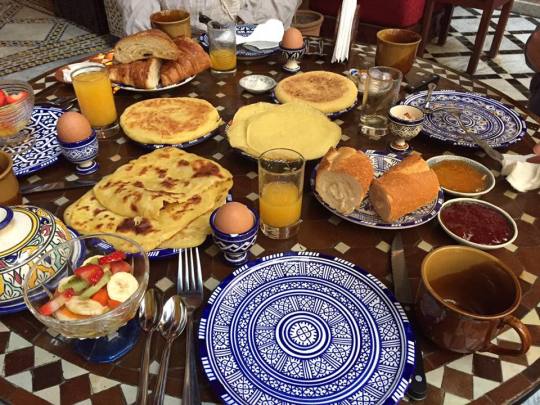
Breakfast in Fez (since we’re on the stressful topic of rape)
The idea of clothing as a rape deterrent stands in stark contrast to my Western feminist belief that a woman should wear what she wants without fear of attack. I tend to consider items such as clothing more culturally relative, though, so I did try to withhold judgment regarding the hijab, niqab, and burka.
Upon arriving in Rabat (Morocco’s capital), I first noticed the diversity of the clothing. There were women who I could have been easily spotted on the streets of Chicago and New York and then there were women wearing the more traditional Moroccan Djellaba (longer, loose-fitting robe). I would say most of the women who appeared to be 40 and up were wearing the hijab and most of the younger women were not wearing them (purely anecdotal though). So I did not feel that I stood out that much since I was wearing looser fitting clothing.
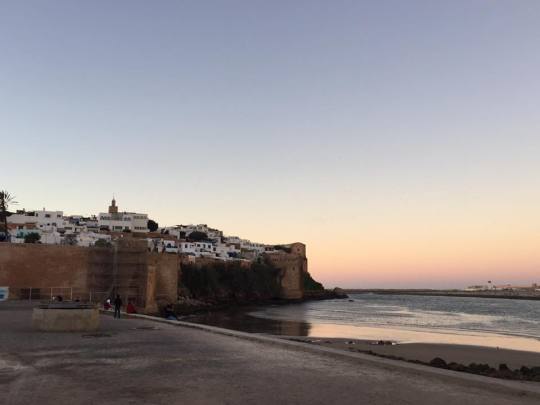
Kasbah des Oudaias in Rabat
But how did I experience mobility as a woman? Was it different in Morocco than in the US? Many blogs about traveling in Morocco as a woman mentioned harassment by men – and those blogs were in my mind as I walked through the different cities. While I was advised to not walk around or hang out by myself at night, I felt fine in the daytime and noticed little difference in Morocco versus Chicago. Several times I walked with another woman at night and we weren’t bothered at all. Of course, this isn’t to say that I didn’t deal with any harassment – there were certainly more than a few cases of [leering, staring, etc.]. But my experience was no different than my normal, everyday experiences, and it made me think that the women who wrote those blogs had little experience in big cities, where such harassment, unfortunately, is common. I also wondered if my feeling of security stemmed from my dark hair, eyes, and olive/tannish skin - sadly, the idealization of fair skin, blonde hair, and blue eyes (the Eurocentric beauty standard that is applied heavily to women) is inescapable, and is as common in Morocco as it is around the world.
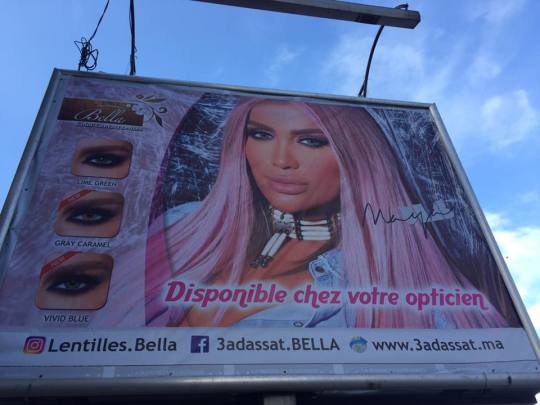
Sign for contacts in every color except brown/hazel in Casablanca!
Either way, I did not feel any less safe there than I do here in Chicago. In fact, I noticed that in Chicago I frequently feel on edge while walking for fear of being raped or mugged at gunpoint. The bigger concern in Morocco was petty theft, which can impact any gender (though women are viewed as more vulnerable) and occur in any location. It was refreshing to be in a location that does not have the added threat of gun violence.
Another orientalist idea that my trip to Morocco debunked was how women in hijabs were very timid, obedient, and did not speak their minds; and that rather, they were ruled by the man they were with or their fathers. My experience, though, was seeing many women in hijabs treated with respect and dignity on the street while maintaining a proud presence as indicated by holding one’s head up high with good posture. I of course do not know what happens in private, and rural areas can be very different than urban environments, so the experiences can be drastically different.
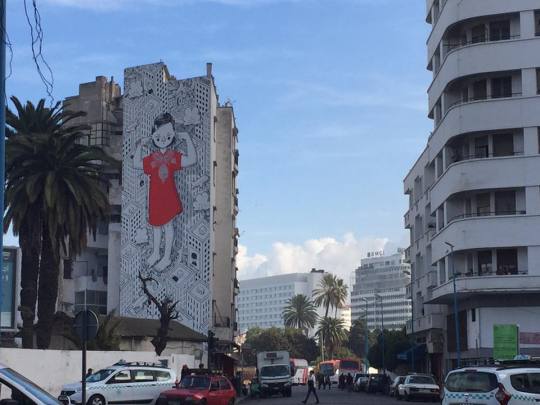
Casablanca
To be honest, it was kind of refreshing to be in a culture that celebrates modesty compared to the rampant exhibitionist values of the West. I appreciated temporarily wearing looser clothing and not having to be self-conscious of how jeans make my butt look or be conscious of my chest because I was always covering everything up. It is surprising how much we occupy ourselves with how our bodies appear to others and it was nice taking a little break from that by covering up with long sweaters and scarves. I did not wear a hijab because I am not Muslim, and the diverse urban environment did not pressure me to wear one - I did not feel like I was an outcast for not wearing a hijab. No one seemed to care.
Modesty is not a focus of the Western world. Instead, we talk about freedom of expression and women wearing whatever they want to wear, which I completely and wholeheartedly support. Unfortunately, in a patriarchal society, where women, not men, are blamed for the objectification of women, I wonder if we as women are shooting ourselves in the foot by dressing sexily because it is our right to express our sexuality while at the same time being rampantly objectified when we do wear sexy clothing (you know that gaze that men give you when you do dress sexily – which they can give even when you are wearing sweatpants but it at least feels more personally intense if I am wearing something more revealing).
Our Moroccan cultural liaisons had told us that the modest dress was a mixture of culture and religion. I was told that “men are more visual,” which is one of the reasons why women are expected to cover up more. But again, my Western feminism was blaring in my head: “Why can’t men control themselves?” “Why can’t men not stare or look?” “Why is it all on the woman to take precautions when it should be the man who should control himself?!” I recognize these thoughts as Western, and not sympathetic to the cultural and religious practices of the Moroccan people, and I remind myself that I am not in a position to judge Moroccan cultural practices. But thinking about this under the umbrella of the Moroccan culture and religion made me think more deeply about women’s attire in the West.
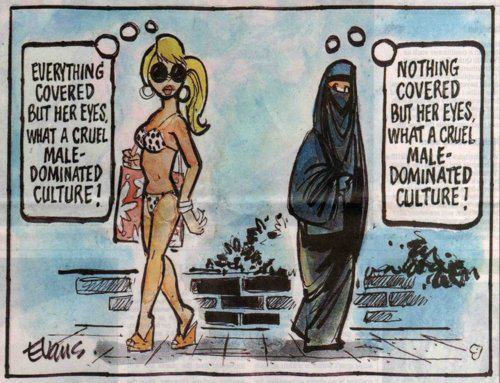
I do think it is easier to be taken more seriously if a woman dresses more modestly in a work environment based off of my own limited experiences. But should it be that way? I don’t think so - we should not have to modify what we wear to be taken seriously. A person should be respected simply by the nature of her personhood, and not by her clothing choices. When I was learning about Islam and Moroccan culture, I was told that the concept of modesty applies equally to men and women - men are expected to be modest too. But what does it mean for a man to dress modestly? Or immodestly? It seems as if it is already the norm for men to dress modestly all over the world. They are expected to wear looser fitting clothing so I wasn’t sure what that means. From my experiences, modesty only seems to truly impact what women can or cannot wear. Why does modesty only result in denying a woman’s sexuality? My good friend had me thinking...As a woman who is attracted to men, I can appreciate a nice thick beard with a strong jawline, nice biceps or nicely coiffed hair so shouldn’t men cover up their faces, hair, and arms too so I don’t feel sexual urges or feel tempted? Why aren’t men told to cover up? Perhaps people feel threatened by women’s sexuality because it is the one power we really have over men in our patriarchal society.
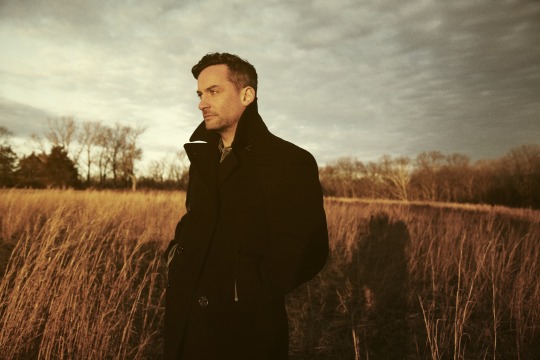
Bonobo, Producer/DJ has a great jawline
Overall, modesty was explained as a tenet of Moroccan culture, not only in terms of physical appearances but insofar as people were not meant to be flashy with wealth, property, beauty, etc., because it is too “of this world” and distracts people from more important spiritual matters. It also is meant to not make people feel bad who aren’t wealthy or conventionally beautiful, which I found to be a very progressive reason. The notion that you don’t flaunt what you have, whether it is beauty or wealth, because you will make others feel bad for not having those things was a very compassionate idea to me. I was truly touched by it. I can’t imagine people in the West not flaunting whatever crap it is they have for the interests of others. People are so individualistic in the West that people are rarely willing to make sacrifices for others’ sanity, even if they are minor sacrifices.
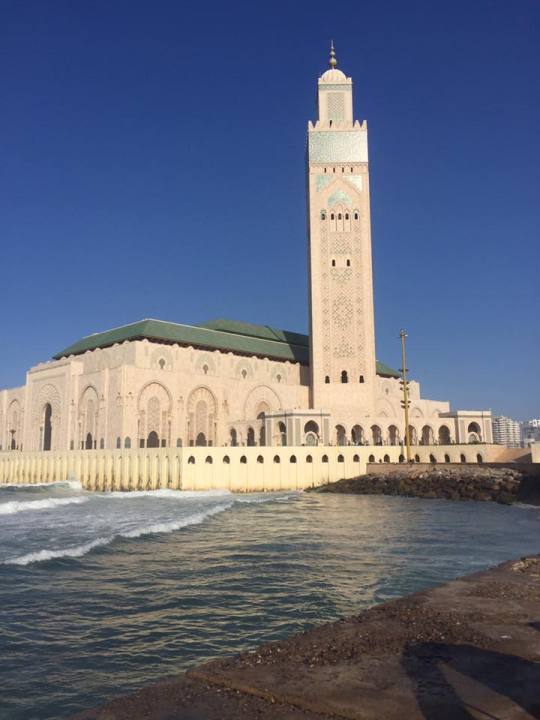
Hassan II Mosque in Casablanca
Altruism, communal values, sharing with others what you do have, and being considerate were such refreshing parts of Moroccan culture. I am sure I am romanticizing some aspects and my experiences are not typical because I was a foreigner who visited only urban areas for two weeks. But even so, I was touched by (and surprised by) people’s generosity, whether it be from students, strangers, or acquaintances. When I was taking a train, a woman with a baby allowed strangers (grown men) to interact and play with her baby as if it was their own. Can you believe that? She showed no fear or uncertainty in that exchange. I can’t imagine that happening here in Chicago: we are so afraid of what strangers will do to us and the people we love. In day-to-day interactions, people seemed genuinely warm and happy to talk to you or happy to interact with you at a café, even if you don’t speak Arabic (it was pretty easy to get around in French because it is taught from the second grade up – you know that whole colonization mess never ended). I do not experience this genuine kindness from strangers in the U.S., or, if I do, it feels fake.
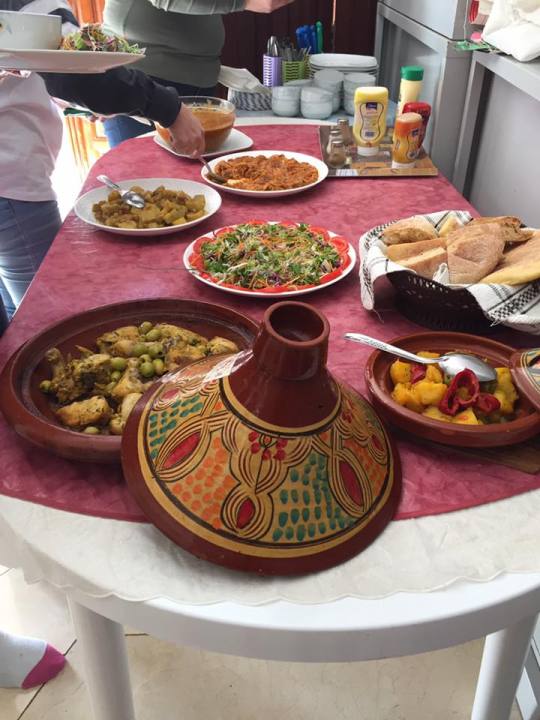
Just a “typical” lunch at our homebase in Rabat
Landing from Morocco at JFK airport in New York felt like someone splashed cold water in my face from a surreal, beautiful dream. The contrast with Morocco was striking, whether it was the grumpy isolated faces I saw on El train or the cold, grey gloomy weather of Chicago – nothing like the warmth of the Moroccan people I encountered or the sunny landscapes of palm trees.
Walking on the streets in Chicago, I was initially much more aware of how people just want to get past you. In restaurants or cafes, rather than spending time interacting, servers just want to be done with you until the next transaction. Everyone is always in a rush. I, too, reverted back to the rush of making appointments on time, getting to work on time, and not wanting to interact with anyone – and I noticed it in myself. It was hard to get back to this way of living. I had eaten communally with my students in a volunteer house every day and it was a truly unifying experience. Food brought people together and it was a wonderful experience to be cherished rather than rushed; valued simply for your time and presence, and not your money or service.

Chicago
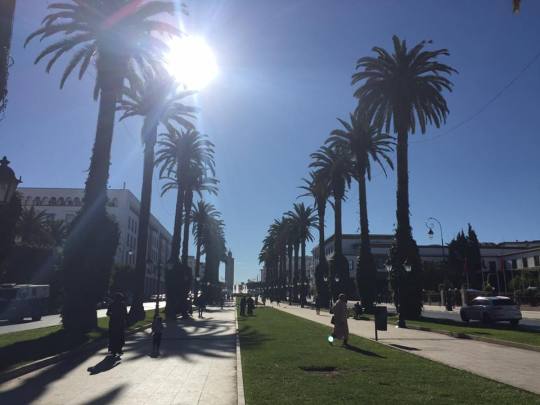
Parts of “new Rabat”
The rush of life in Chicago reminded me how much I deeply appreciated the flexibility of time in Morocco, too. Events start within more of a time range rather than a specific time. I found that to be so much less stressful than rushing for work or appointments. It made daily activities much more enjoyable. I think we’d all be happier and less stressed out if we didn’t have to be so concerned with being on time. (It also made me think about students who come late to class and how Western-centric my attendance policy is, but that is a whole other discussion.)
Overall, the biggest myth that this trip to Morocco debunked for me was the idea that fewer freedoms means a lower quality of life. Like any country, Morocco has its share of problems. But while I was less free as a woman to do things at night and wear whatever I felt like wearing, I did not necessarily feel unhappier. Instead, I felt more enriched and had more time to read, be introspective, and truly engage with others.

One of my favorite images in Rabat
Again, though, I acknowledge that this is only my experience, and that it was for a very limited amount of time. Additionally, I think other factors contributed to my feelings of enrichment and engagement, such as being less tied to technology, having more genuine conversations with strangers, and living more communally. These were experiences that I will apply more to my life here in Chicago. While I am, in some regards, freer here, I am not necessarily happier here. This experience in Morocco has definitely allowed me to engage in some difficult personal work of deconstructing my own orientalism about Islamic countries.
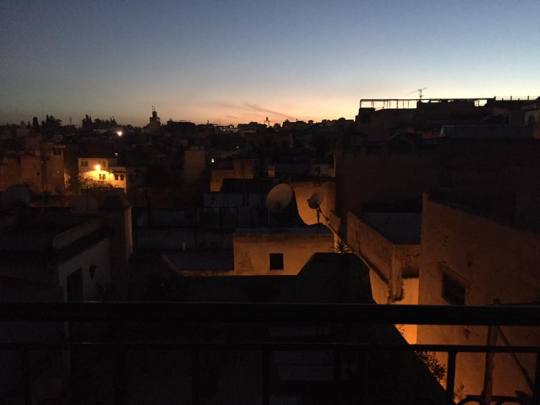
Sunset in Fez
#morocco#feminism#women#men#patriarchy#travel#postcolonial theory#orientalism#edward said#rapeculture#gender#bonobo#food
1 note
·
View note
Text
Prince and Beyonce
Introductory note from me: I considered whether I should post this or not since I am not a black woman and have not shared the same struggles as black women in America. I do not aim to deconstruct blackness or black female identity in Beyonce’s Lemonade since I do not have a valid epistemic perspective on these issues. However, Beyonce’s visual album resonated with me deeply relating to gender (of course not all women’s experiences are the same), invisibility, love, and the struggles of living in a society that constructs whiteness as the norm for female beauty (which resonates with me as kind of a nonwhite woman) even as someone who isn’t married and isn’t a black woman. I don’t necessarily think my perspective is more valid than anyone else’s on this topic, I am just offering my thoughts.
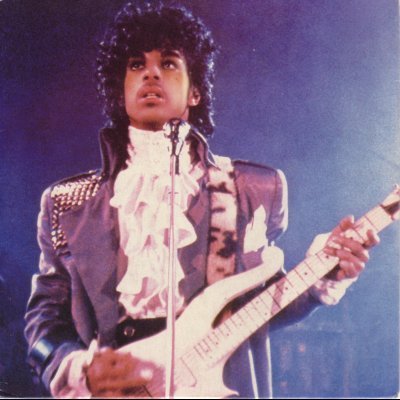
Wow, what a week. First the shocking, tragic death of Prince and then the monumental, groundbreaking premiere of Beyonce’s Lemonade. So what? Another “rich celebrity” died and a “pop star” came out with a visual album. Why are these events relevant to me? Throughout most of my youth, I attempted to ignore celebrities, pop stars, and other celebrated aspects of mainstream society because I thought they conflicted with my “intellectual endeavors.” But I realized in my 20s that all of my ideas are useless if I don’t understand what the hell is going on in my society. These two figures are not just shallow pop stars; they are extremely talented artists whose anguish and sexuality have deeply resonated with me (Prince took a while for me just because of the timing). Prince defied gender and racialized musical genres. He unapologetically embraced femininity while presenting a more multifaceted masculinity and still remained the object of many people’s sexual fantasies who tend to be attracted to the “masculine.” He transcended musical genres that make it impossible to consider him solely as a “pop star” or an “R&B or soul singer” or a “rock star.” He simultaneously helped you cry through a break up and get pumped for sexy times a few hours later. It’s hard to think of anyone in my generation that I could even compare him to artistically. Beyonce is the closest contemporary artist who I can even fathom as someone who is organically talented and crosses genres, and in coincidental timing, Beyonce was also making headlines shortly after Prince’s death.
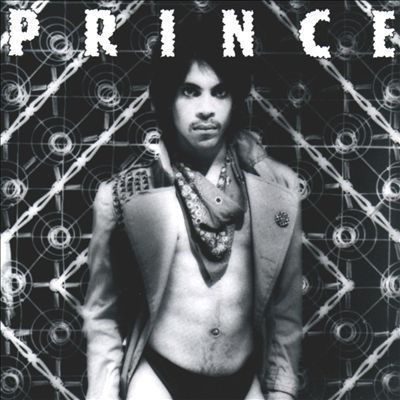
Upon mourning the death of Prince I pushed myself to watch Beyonce’s new video album Lemonade and I was absolutely moved and blown away by her pain, her passion and her artistry. When one thinks of “gender bending,” Beyonce usually doesn’t come to mind. She has always embraced a very feminine, “sexy” persona in her public persona and music, while songs like “Flawless” were a testament to her brand of empowered femininity.
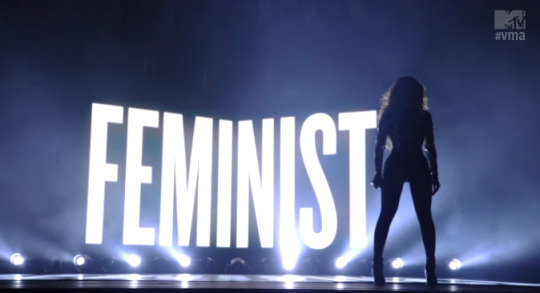
But in Lemonade, Beyonce has reached a new level of artistry and gender expression. It was extremely satisfying and cathartic for me to watch. Creepy horror shots, rural southern imagery, drowning in water, and the solace of sisterhood were just a few of the seamlessly directed shots meeting my eyes as I simultaneously listened to her emotionally raw lyrics about turbulent romance, erasure, alienation, family, and intersectional oppression. I absolutely loved the video for “Hold Up” where she was walking on a city street, wearing a long flowy yellow dress with platform heels while destroying cars and fire hydrants with a baseball bat: ahhh the epitome of beautiful, feminine rage. She was able to display her anger, her power, and her disgust while still not relinquishing her femininity; the two weren’t mutually exclusive as they are usually portrayed in our society. She’d rather be called crazy then let a man walk all over her, as she says. Crazy is a threat used by men against assertive, intelligent self-respecting women as a shield. If you’re “crazy” you’re not “chill” or “cool,” which is what is expected of a woman even if she has been used, duped, or mistreated in some way. Even if you try to change, become “calmer,” “chiller,” and more “easygoing,” you can’t because you’re a complex, intelligent person who is awake and alive.
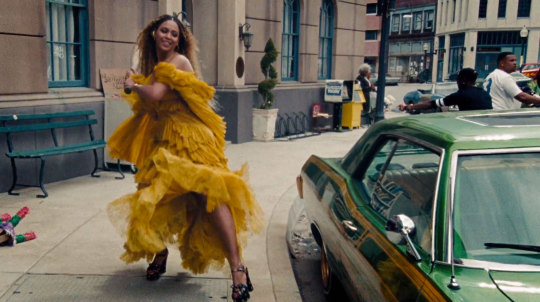
She expressed this impossible self- mutilation from Somali-British poet Warsan Shire in her poem “For Women who are difficult to love.”
“For Women who are difficult to love” by Warsan Shire
“you are a horse running alone
and he tries to tame you
compares you to an impossible highway
to a burning house
says you are blinding him
that he could never leave you
forget you
want anything but you
you dizzy him, you are unbearable
every woman before or after you
is doused in your name
you fill his mouth
his teeth ache with memory of taste
his body just a long shadow seeking yours
but you are always too intense
frightening in the way you want him
unashamed and sacrificial
he tells you that no man can live up to the one who
lives in your head
and you tried to change didn’t you?
closed your mouth more
tried to be softer
prettier
less volatile, less awake
but even when sleeping you could feel
him travelling away from you in his dreams
so what did you want to do, love
split his head open?
you can’t make homes out of human beings
someone should have already told you that
and if he wants to leave
then let him leave
you are terrifying
and strange and beautiful
something not everyone knows how to love.”
It’s not that you’re unlovable, it’s that men don’t know how to love you. People love lazily and conveniently. I don’t know if it has always been like this, but I know it’s like this at least now. But one mustn’t change to become the “easygoing, simple girl” who can be easily loved. To change in that way is an act of annihilation.
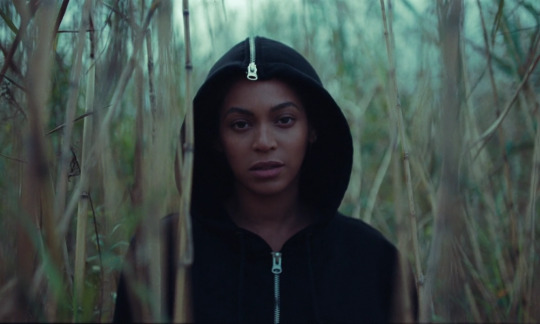
Throughout her videos she consistently defies the idea that a feminine woman is submissive, obedient, and stupid and will just settle for her man’s whims. Whether or not her songs are about Jay Z having an affair, they speak for themselves and resonate deeply with me. In “Don’t Hurt Yourself,” she sings of a very universal situation…not being recognized for her worth by her partner. It gets exhausting being treated less than you’re worth.
“Who the fuck do you think I am?
You ain’t married to no average bitch boy
You can watch my fat ass twist boy
As I bounce to the next dick boy
And keep your money, I got my own
Get a bigger smile on my face, being alone”
She’s got options and doesn’t have to put up with being treated terribly. He is a choice out of many options for her while she remains merely a choice for him. What I love about this is that she isn’t afraid of being alone; she would rather be alone than be treated as secondary. As I’ve entered my late 20s, this is something I have realized more and more about myself. It’s easy to find people who can treat you as less than you’re worth, but it is extremely rare to find someone who recognizes that you are special. I am far happier being alone than settling for mediocrity and poor treatment. This isn’t to say that those who are married and are struggling are settling for mediocrity. There is definitely a lot of admiration I have for those who do fight for their marriages even when it is the more difficult path and we see Beyonce making that choice as well in spite her husband’s infidelity.
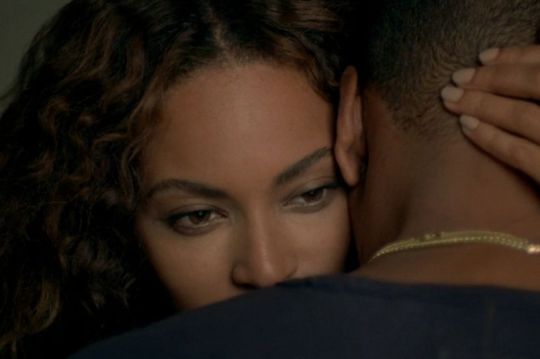
But Lemonade isn’t only about personal romantic relationships, it’s about embracing femininity, womanhood, and blackness in a society that looks down up on all of these facets of identity. The images of Trayvon Martin’s mother, Eric Garner’s mother and Michael Brown’s mother serve as a harrowing reminder that the personal is tied to the political and the context from which Beyonce is singing cannot be ignored regardless of how much we distract ourselves with all of the noise of life. While Beyonce is of course a singer who is focused on selling her art in a capitalist society, her acts of resistance should not be discounted due to her economic status. She is using her economic privilege as a way to call out and bring attention to issues relating to intersectional oppression, the erasure of black women’s existence, and the hatred/dismissal of the feminine by those who refuse to be accountable for their degrading actions. As Malcolm X said in his speech:
“The most disrespected person in America is the black woman.
The most unprotected person in America is the black woman.
The most neglected person in America is the black woman.”
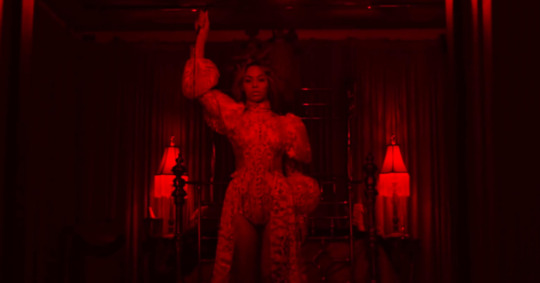
Lemonade takes an extremely disrespected group of people in society, the black woman, and opens mainstream society’s eyes to her struggles as a mother, a woman, a partner, and an individual.
6 notes
·
View notes
